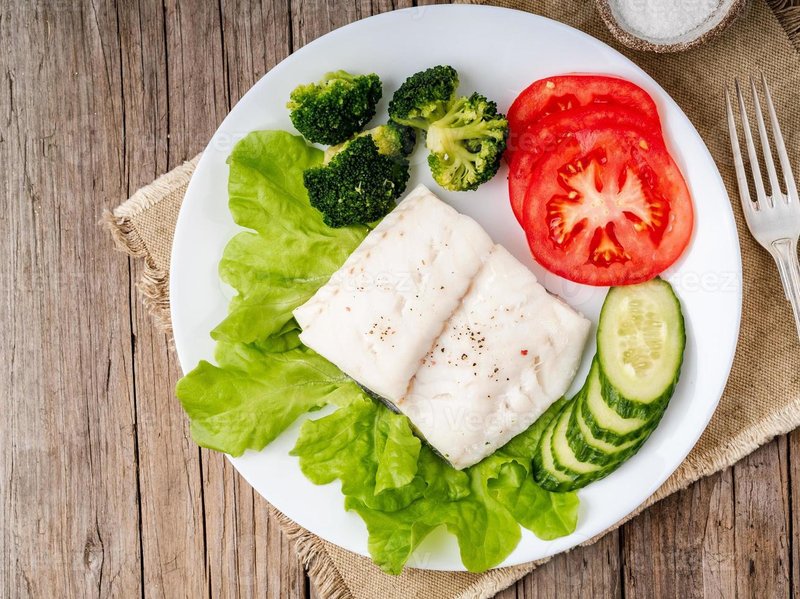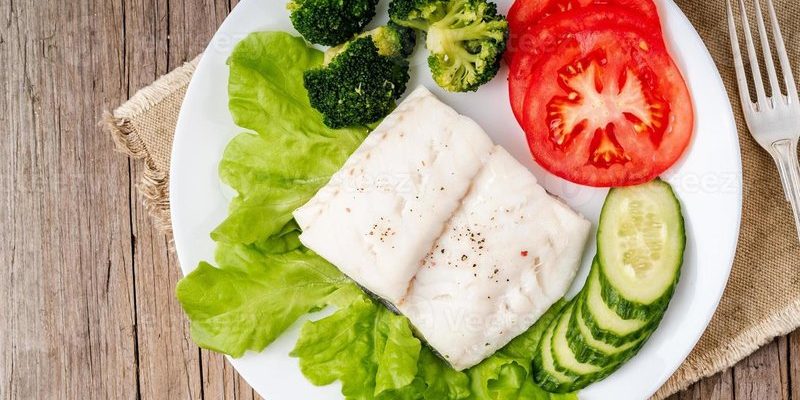
Now, let’s dive into the life of cod and see what makes their diet so essential. Think of cod as the ultimate ocean foragers, adapting their eating habits to their environment. Just like how we might choose food based on availability, taste, or nutrition, cod do the same in their watery world. So, what do they actually eat, and how does this impact their habitat and our fishing practices? Let me explain.
Understanding Cod: A Quick Overview
Cod are large fish found in cold waters, primarily in the North Atlantic. They can grow quite large—some even exceed 200 pounds! These fish have a streamlined body, which makes them agile swimmers. They tend to inhabit deeper waters, but they also come closer to the shore during spawning seasons. You might be wondering, how does their environment affect their diet?
Their habitat plays a key role in shaping what cod eat. Typically, coastal and shelf areas provide an abundance of food sources. Their omnivorous nature allows them to adapt their diet based on what’s available. You might say they’re the ultimate foodies of the sea, sampling a variety of prey as they swim through their underwater neighborhoods.
What Do Cod Eat?
Cod have a diverse diet that includes various types of prey. Here’s a quick rundown of what they typically chow down on:
- Smaller Fish: Cod love to eat smaller fish like herring, capelin, and sand lance.
- Crustaceans: Shrimp and crabs are also on the menu, providing essential nutrients.
- Other Marine Creatures: They might even snack on mollusks and cephalopods like squid.
As efficient predators, cod use their keen eyesight and acute sense of smell to locate prey. They often hunt in the early morning and late evening when their food is most active. By understanding this part of their behavior, fishers can better plan their trips, ensuring they’re in the right place at the right time.
Feeding Strategies of Cod
Cod employ several tactics when it comes to hunting and feeding. They’re versatile hunters, which gives them an edge in the competitive world of the ocean. Here are some common strategies they use:
Ambush Predation
Cod are sneaky! They often lie in wait for their prey to come close before darting out to catch it. This strategy works well for them because they’re fast swimmers, able to cover short distances quickly. Imagine playing hide-and-seek; they wait for the perfect moment to make their move!
Group Hunting
Sometimes cod will hunt in groups, making their attacks more effective. By coordinating their actions, they can confuse and trap their prey, leading to more successful meals. Teamwork makes the dream work, even in the deep sea!
The Role of Diet in Cod Growth and Reproduction
Diet is not just about survival for cod; it significantly impacts their growth and reproductive success. Young cod, known as fry, need high-protein diets to grow strong and increase their chances of survival. Here’s how it all connects:
Growth Rate
The more nutritious their diet, the faster cod can grow. This is essential in their early life stages when they are vulnerable to predators. A diet rich in smaller fish and crustaceans ensures they develop quickly and become robust enough to fend for themselves.
Reproductive Success
When cod reach adulthood, a well-fed cod is more likely to spawn successfully. Nutrient-rich diets help female cod produce more eggs, ensuring that the next generation has a fighting chance. It’s all about the circle of life, and their diet is a key player in that!
Impact of Diet on Cod Populations and Ecosystem Health
The diet of cod has broader implications for marine ecosystems. When cod populations thrive, they help keep the balance within their underwater community. Here’s how:
Prey Population Control
By feeding on smaller fish and crustaceans, cod help manage those populations, preventing overpopulation and ensuring a balanced ecosystem. Too many smaller fish could lead to overgrazing on plankton, disrupting the whole food chain.
Indicator Species
Cod are often seen as an indicator species. Their health and population numbers give scientists clues about the overall health of marine environments. If cod populations decline, it can signal problems within the ecosystem that need to be addressed.
Challenges to Cod Diets and Feeding Habits
Unfortunately, cod face several challenges that might impact their diets and overall survival. Let’s explore a few of these issues:
Overfishing
Overfishing has significantly reduced cod populations in many areas. When too many cod are caught, it disrupts their ability to feed and reproduce effectively. Less prey means less food for the remaining cod, which can lead to a vicious cycle of decline.
Environmental Changes
Changes in water temperature and acidity can also affect the availability of their prey. As climate change continues to impact oceans, the food sources cod rely on might become scarce or migrate to new areas. Cod need to adapt quickly to survive, which can be a tough challenge.
Understanding the diet and feeding habits of cod gives us valuable insights into their role in the ocean ecosystem. From their impressive hunting strategies to the impact of their diet on growth and reproduction, these fish are more than just a popular meal choice. They are vital to maintaining the balance of marine life.
As we continue to enjoy cod in our kitchens, it’s important to acknowledge the challenges they face in the wild. Supporting sustainable fishing practices ensures that cod and their ecosystems remain healthy and thriving for generations to come. So next time you see cod on your plate, remember the incredible journey and the delicate balance of nature behind that meal!

